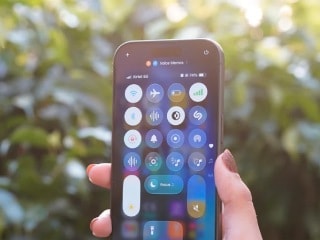- Home
- Telecom
- Telecom News
- US FCC Affirms That Carriers Can Block Unwanted, Spam Text Messages
US FCC Affirms That Carriers Can Block Unwanted, Spam Text Messages
The Federal Communications Commission voted on Wednesday to clarify that wireless carriers have the authority to block unwanted or spam text messages, but Democrats warned the decision would allow carriers to block or censor texts that customers send.
The FCC voted 3-to-1 to classify text messages as an information service rather than a telecommunications service, which it said would have limited the ability of wireless carriers to combat robotexts and spam messages.
The FCC said text messages have become a trusted form of communication as wireless providers like AT&T, Verizon Communications and Sprint Corp successfully eliminated most spam texts. In 2017, 1.77 trillion text messages were exchanged in the United States.
FCC Chairman Ajit Pai said the commission's decision would allow wireless providers "to continue taking action against unwanted text messages."
But FCC Commissioner Jessica Rosenworcel, a Democrat, said the vote means "you no longer have the final say on where your text messages go and what they said. That means your carrier now has the legal right to block your text messages and censor the very content of your messages."
The FCC said the decision addressed bulk messaging and did not affect individuals sending messages or blocking specific senders.
Pai said "the FCC shouldn't make it easier for spammers and scammers to bombard consumers with unwanted texts. And we shouldn't allow unwanted messages to plague wireless messaging services in the same way that unwanted robocalls flood voice services."
The declaration was prompted after Twilio, which sends texts for companies, in 2015 asked the FCC to declare that text messages are "telecommunications services."
Twilio asked the FCC for the declaration to prohibit
what it said was wireless providers' "unfettered" blocking of text messages.
Public Knowledge, an advocacy group, said carriers could discriminate against text fundraising campaigns or by political campaigns and marketing firms. The group argues the action "undermines the public's right to use text messaging without undue interference from wireless companies."
Last week, nine Democratic US senators said the vote would "stifle free speech" and cited Verizon's 2007 decision to briefly block mass text messages from a group supporting abortion rights before reversing itself.
CTIA, a wireless industry trade group, praised the FCC "for protecting consumers from an avalanche of messaging spam and allowing them to continue to benefit from a flourishing and competitive messaging ecosystem."
© Thomson Reuters 2018
Get your daily dose of tech news, reviews, and insights, in under 80 characters on Gadgets 360 Turbo. Connect with fellow tech lovers on our Forum. Follow us on X, Facebook, WhatsApp, Threads and Google News for instant updates. Catch all the action on our YouTube channel.
Related Stories
- Samsung Galaxy Unpacked 2025
- ChatGPT
- Redmi Note 14 Pro+
- iPhone 16
- Apple Vision Pro
- Oneplus 12
- OnePlus Nord CE 3 Lite 5G
- iPhone 13
- Xiaomi 14 Pro
- Oppo Find N3
- Tecno Spark Go (2023)
- Realme V30
- Best Phones Under 25000
- Samsung Galaxy S24 Series
- Cryptocurrency
- iQoo 12
- Samsung Galaxy S24 Ultra
- Giottus
- Samsung Galaxy Z Flip 5
- Apple 'Scary Fast'
- Housefull 5
- GoPro Hero 12 Black Review
- Invincible Season 2
- JioGlass
- HD Ready TV
- Laptop Under 50000
- Smartwatch Under 10000
- Latest Mobile Phones
- Compare Phones
- OPPO A6v 5G
- OPPO A6i+ 5G
- Realme 16 5G
- Redmi Turbo 5
- Redmi Turbo 5 Max
- Moto G77
- Moto G67
- Realme P4 Power 5G
- HP HyperX Omen 15
- Acer Chromebook 311 (2026)
- Lenovo Idea Tab Plus
- Realme Pad 3
- HMD Watch P1
- HMD Watch X1
- Haier H5E Series
- Acerpure Nitro Z Series 100-inch QLED TV
- Asus ROG Ally
- Nintendo Switch Lite
- Haier 1.6 Ton 5 Star Inverter Split AC (HSU19G-MZAID5BN-INV)
- Haier 1.6 Ton 5 Star Inverter Split AC (HSU19G-MZAIM5BN-INV)

















